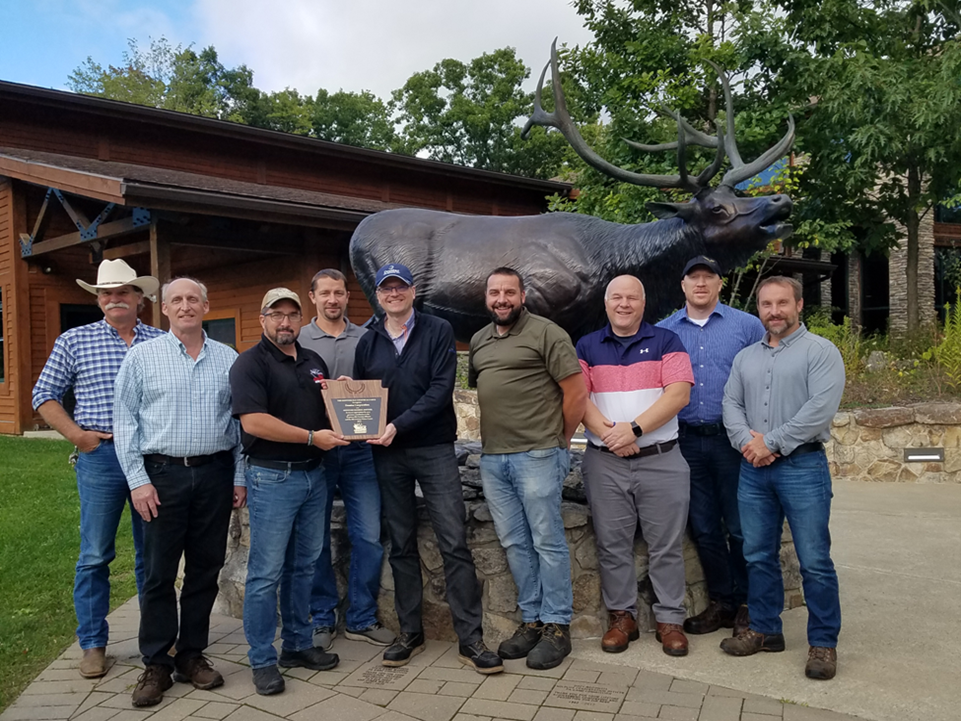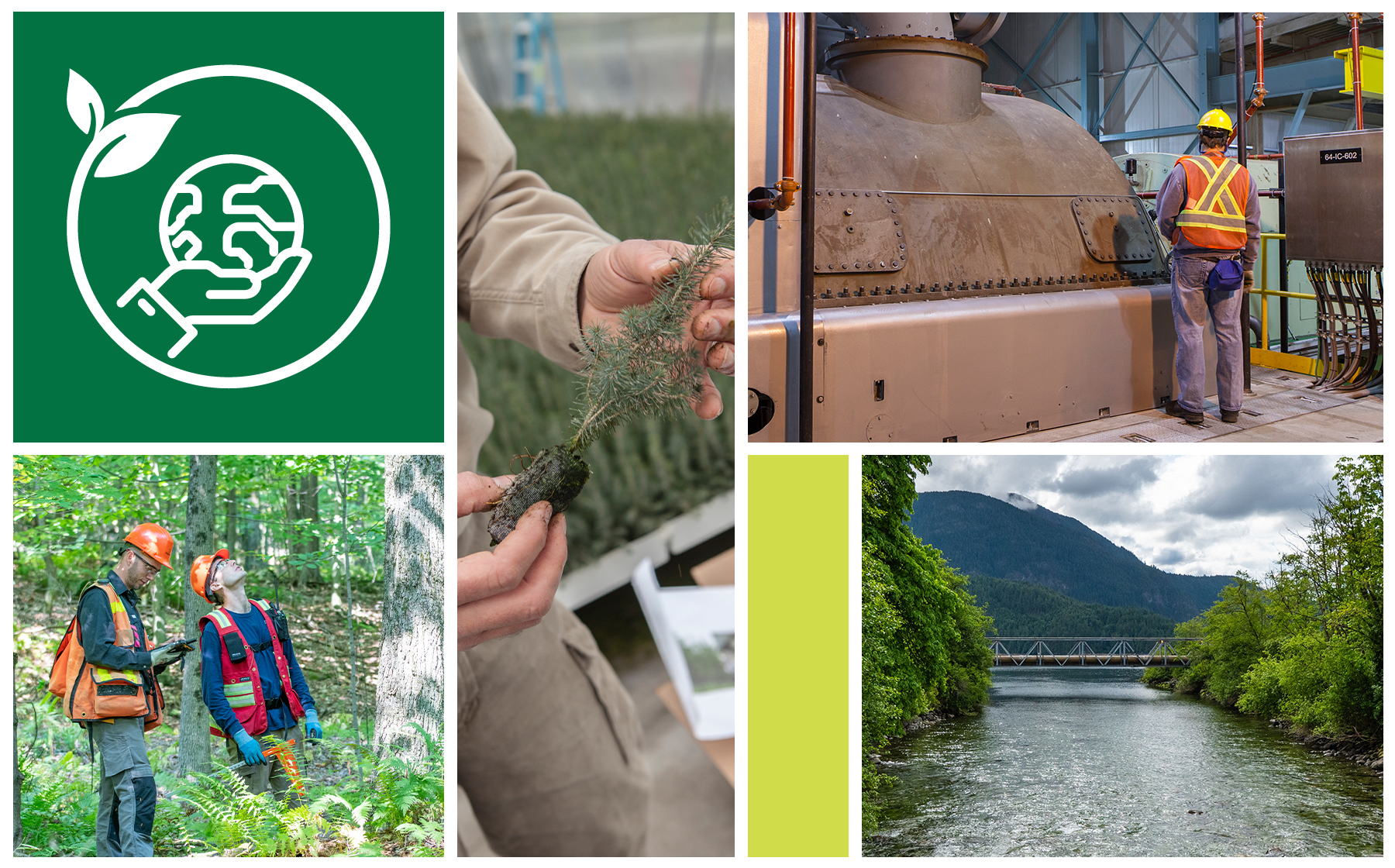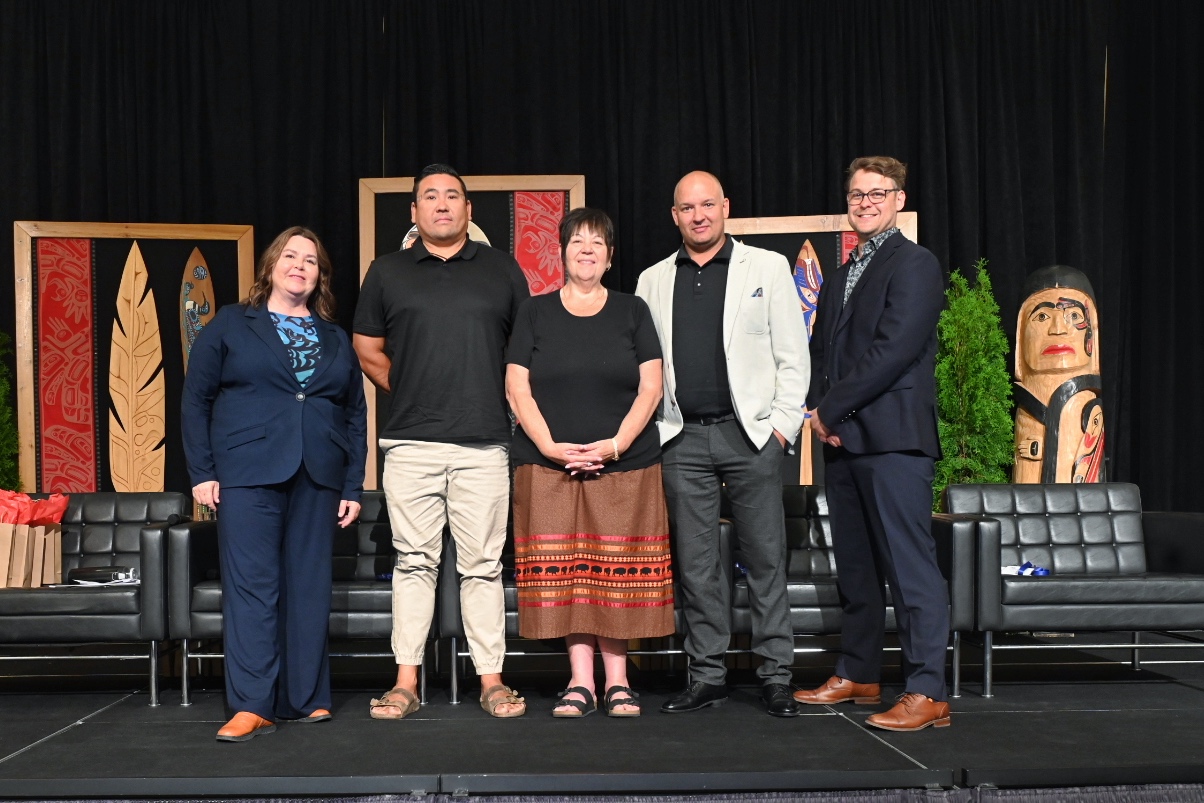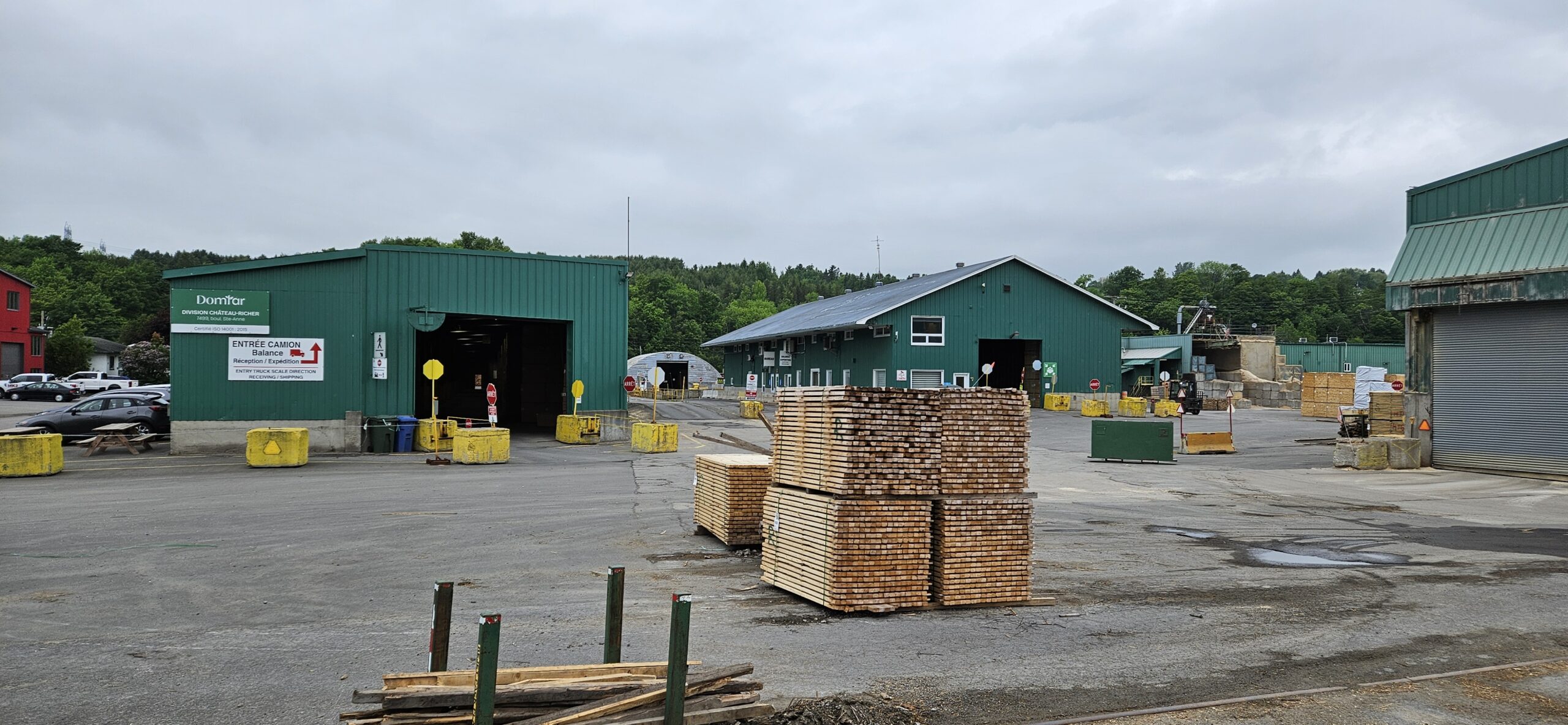As a manufacturer of wood fiber-based products, Domtar is committed to the long-term sustainability of North American forests. This effort takes many forms, from conserving woodlands to promoting forest certification. Our Johnsonburg Mill leads the way in another important form of ecological responsibility – supporting Pennsylvania wildlife by restoring wildlife habitat.
Located near the Allegheny National Forest in aptly named Elk County, the mill is surrounded by woodlands supporting elk, whitetail deer and black bear. The Clarion River adjacent to the mill teems with aquatic life including brook, brown, and rainbow trout hatched within the mill itself.
But not all area lands are as hospitable.
For decades, coal mining was big business in this region of Pennsylvania. Years of strip mining left behind a pockmarked surface devoid of organic matter. The eroded and acidic soil was unable to support the vegetation healthy ecosystems depend on to flourish.
Today, a facility once powered by the coal whose extraction devastated the surrounding environment leverages its business to benefit local ecology. Driven by the desire to leave a positive legacy, the Johnsonburg Mill has used nutrient-rich manufacturing byproducts like pulp fiber and lime to rejuvenate abandoned mine sites for over 20 years. To date, over 250,000 tons of nutrient-rich residuals from pulp and paper production have been applied to land in the region, benefiting the mill’s backyard and Pennsylvania wildlife.
From Abandoned Strip Mines to Fertile Grazing Lands
Each year thousands of visitors flock to this region to experience the largest elk herd in the northeastern United States. The tourism driven by the presence of this keystone species boosts the area’s economy – a benefit at risk of decline as sustainable habitats dwindle. As a result, the Johnsonburg Mill has engaged with several state and local environmental and game agencies over the years to conserve existing elk habitat and enhance once-thriving lands.
The mill was recently named as an Imperial Partner by the Keystone Elk Country Alliance (KECA) in recognition of supporting Pennsylvania wildlife through a recent project.
Domtar and KECA partnered to apply an estimated 1,200-1,400 tons of paper pulp as an approved soil additive to a 10-acre parcel of reclaimed strip mines. Manufactured from responsibly sourced local fiber, this wood pulp is high in alkalinity and holds moisture well, creating ideal conditions for vegetation growth in parched soil. The treatment balances the soil’s chemistry so that clovers, grasses and grain crops can grow, providing food for elk and other wildlife.
Having recently planted the treated site with a variety of clovers, grazing by local elk herds is reported to be very high.
“We are appreciative of our partnership(s) with Domtar … and look forward to working together in the future,” said Rawley Cogan, president & CEO, Keystone Elk Country Alliance in its Tracks & Racks publication.
Making Room for Birds to Roost
Big game wildlife aren’t the only beneficiaries of the Johnsonburg Mill’s land restoration efforts. Habitat enhancement also makes area lands more attractive to regional birdlife.
Numbers of Pennsylvania’s state bird, the ruffed grouse, have decreased as the habitat they depend on has disappeared. The same goes for other forest birds including the golden-winged warbler and wood thrush. Improperly managed forests often fail to provide the supportive environment required for the nesting and foraging for these species.
To help remedy this, the Johnsonburg Mill has worked with the Ruffed Grouse Society & American Woodcock Society and other conservation organizations to restore poorly managed forest stands and provide more attractive habitats. A unique approach of landowner outreach, species monitoring, and habitat-oriented forest management promotes science-based timber harvesting, supporting Pennsylvania wildlife.
The Domtar mill’s demand for regional pulpwood sends a powerful economic signal, providing income to local landowners and jobs to residents, further incentivizing sustainable local forestry.
Similar land restoration projects on state game lands have created ideal conditions for pheasants to flourish.
In 2018 Richard S. Bodenhorn, then-president of North Central Pennsylvania Pheasants Forever noted, “I would like to thank the Domtar Johnsonburg Mill for once again providing the habitat that made State Game Lands Number 44 the prime place in Pennsylvania for pheasant hunting.”
“Without Domtar’s donation and the work in applying the residuals (working it into the existing ground) and planting the crops, neither the hunters nor the wildlife would be benefiting from what is without a doubt the best habitat they have seen in that area in their lifetime.”
A Landscape Approach to Biodiversity Improvement
Johnsonburg’s species-specific habitat work is part of larger regional conservation efforts the mill is involved with, including the Conservation Fund’s Working Forest Fund program to protect over 32,000 acres surrounding the Johnsonburg Mill and American Forest Foundation projects in northwest Pennsylvania aimed at improving life for at-risk species by creating and enhancing critical bird habitats.
“Through a passion for the environment, the Johnsonburg Mill is making its home more attractive to Pennsylvania wildlife, more valuable to the community, and more enjoyable for nature lovers,” says Tony Casilio, Manager, Environmental, Health & Safety at Domtar.
“We’re proud to support tangible efforts to enhance Pennsylvania’s elk country for future generations.”







